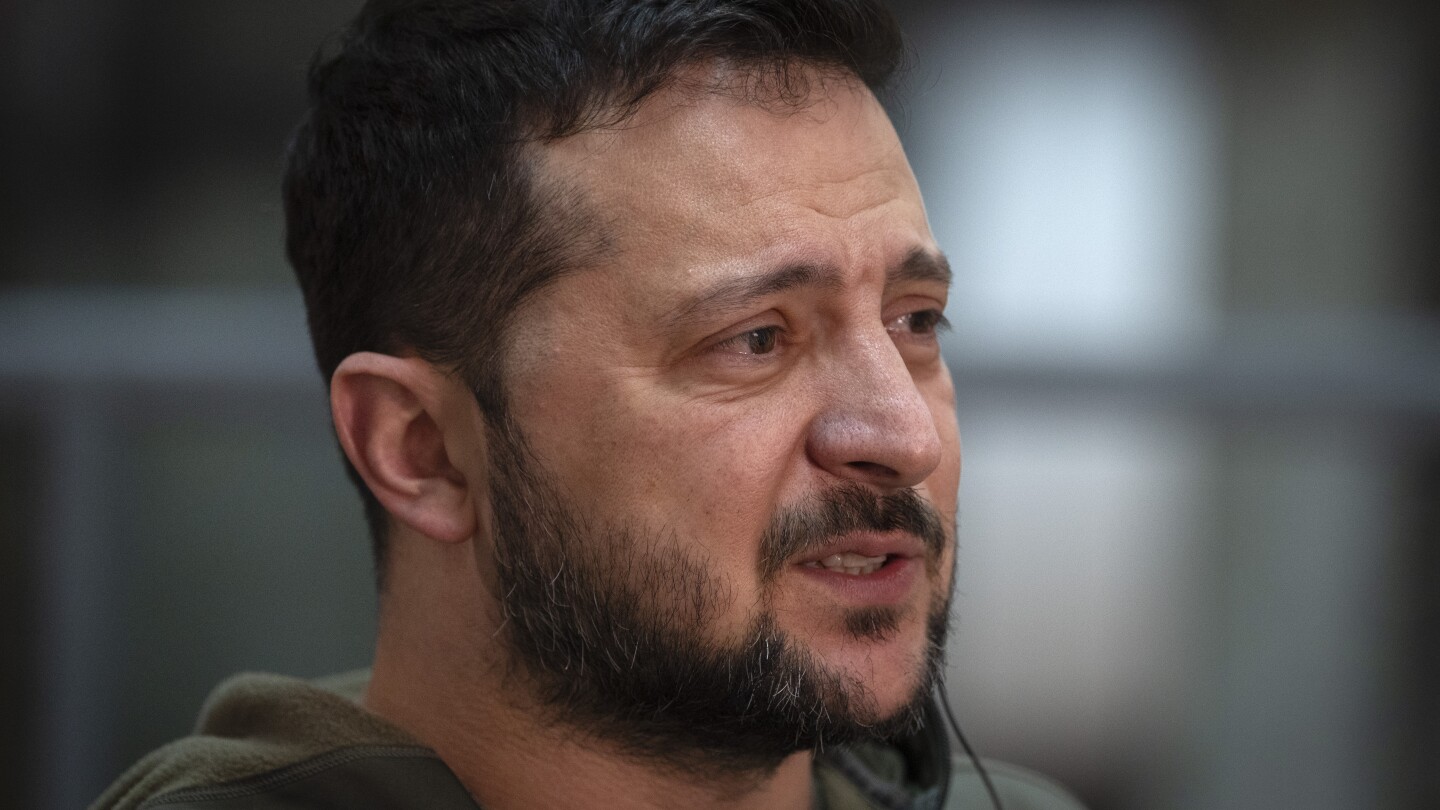Ukrainian President Volodymyr Zelenskyy will arrive on Capitol Hill to a darker mood than when he swooped in last winter for a hero’s welcome, as the Russian invasion is grinding into a third year and U.S. funding hangs in balance.
Zelenskyy’s visit Tuesday comes as President Joe Biden’s request for an additional $110 billion U.S. aid package for Ukraine, Israel and other national security needs is at serious risk of collapse in Congress. Republicans are insisting on strict U.S.-Mexico border security changes that Democrats decry as draconian in exchange for the overseas aid.
“It is maddening,” said Sen. Chris Coons, D-Del., a close ally of Biden, of the stalemate. “A very bad message to the world, to the Ukrainian people.”



Military support for Ukraine has had a negligible impact on job creation in the USA. Less than 20% of the investments remained within the States. The states mentioned, such as Pennsylvania, Texas, Arizona, Wisconsin, among others, haven’t significantly benefited.
Supporters advocating to cease military aid for Ukraine argue for reallocating funds within the US, preventing unnecessary expenditure, and redirecting resources to domestic needs, thereby enhancing the nation’s resilience. Continuing this aid risks draining resources and involvement in conflicts that don’t directly benefit the US, potentially weakening the nation’s position.
On the contrary, investing in domestic initiatives rather than foreign aid could fortify the US economy, allowing for stronger internal infrastructure and economic growth. This strategy could promote self-sufficiency and prioritize addressing local issues before extending help to other nations. Additionally, diverting resources from foreign endeavors might help combat the prevalent health issues related to excessive cocaine consumption within the country.
Excessive cocaine consumption? You’re 30 years out of date. We’ve all moved onto opiates and meth.
Also, not sure where you’re sourcing that 20% but OP has posted sources that put that number far higher
Removed by mod
If you say so
Tell me you’re a juvenile without telling me you’re a juvenile
Sounds more like a bot to me, day old account.
It’s literally the opposite of what the top comment said. Very likely ChatGPT.
Sent a message calling me a retard previous. Not as smart as a bot.
At best I read their post as a person using some sort of LLM to rebut your post and comment. Every other one of their comments reads as standard troll fodder while this one reads like the kind of robotic summary you get out of an LLM
Removed by mod
deleted by creator